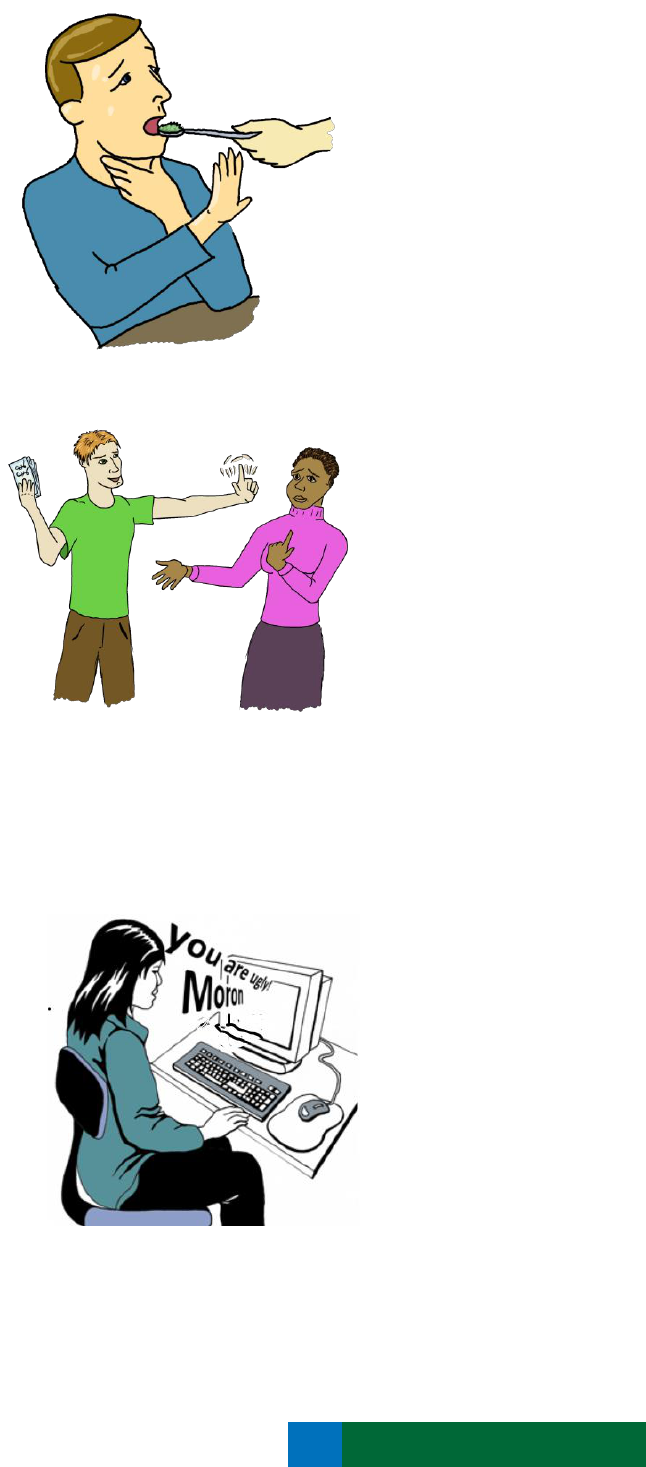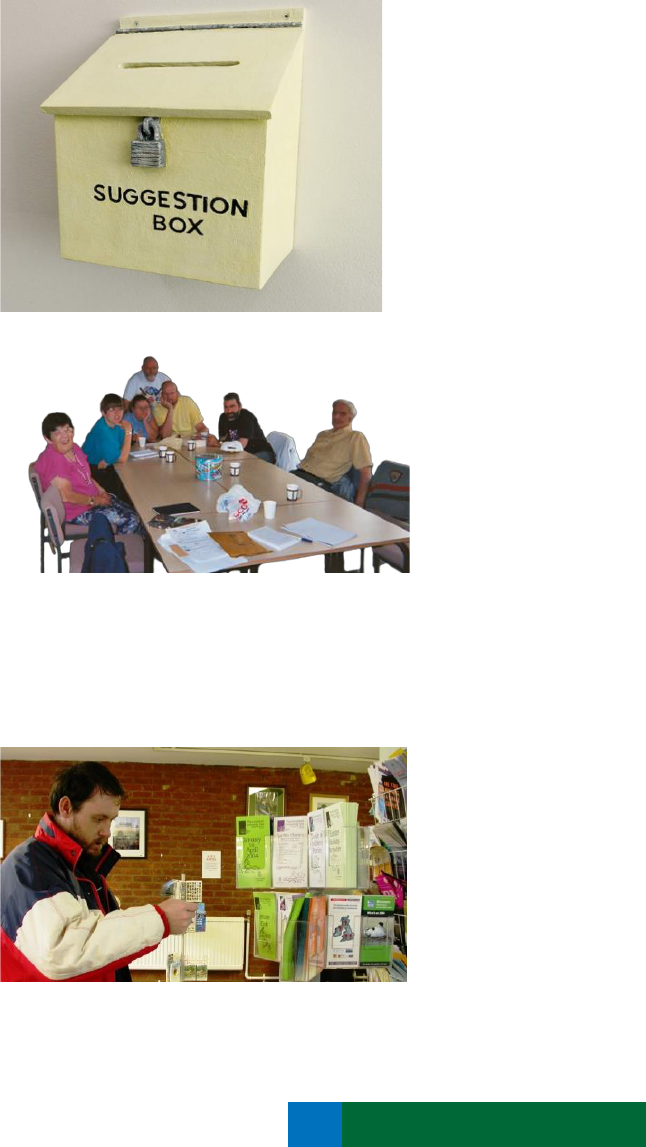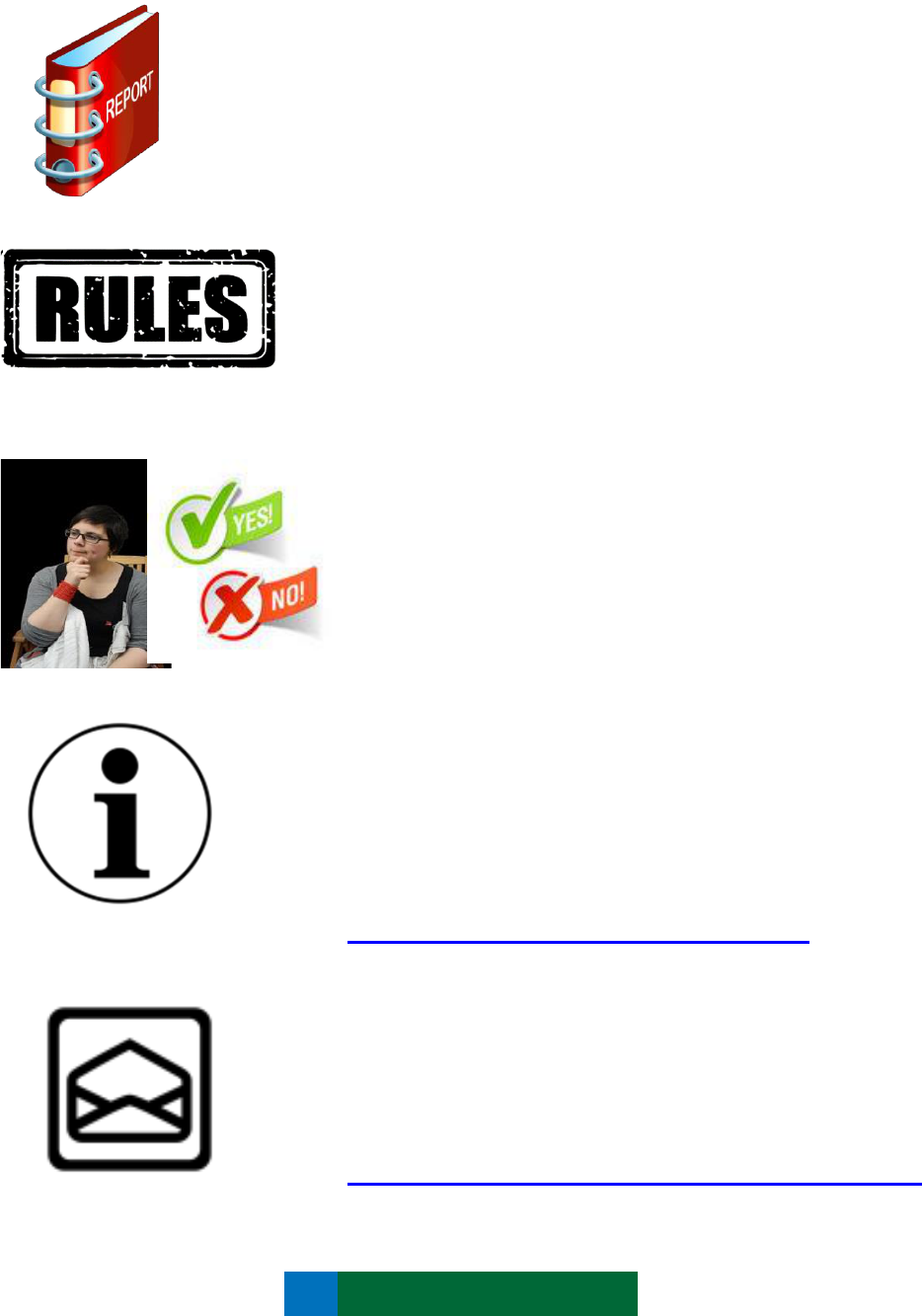
Focus groups about keeping
people safe when they use health
services
Easy Read Report

2
Institute of Public Health
Contents
Foreword ............................................................................................ 3
What is this report about? ................................................................ 4
How we carried out these focus groups ......................................... 5
What people told us .......................................................................... 7
Question 1: What kind of behaviours do you think are harmful? ................ 7
Question 2: If you were being harmed by someone who would you tell? . 10
Question 3: What would you like a person to do? ....................................... 12
Question 4: Would you like to be asked about what should happen? ...... 14
Question 5: What is the best way to keep people safe? ............................. 15
Conclusion: What happens next? ................................................. 18
Thank you ........................................................................................ 19
DOI:10.14655/11971-1084887

3
Institute of Public Health
Foreword
As the Minister for Health, I want to say thanks
very much to each of you who shared your
thoughts with us for this report. Thanks too to
everyone else who helped us.
My Department and the organisations that work
with us are all trying to get better at keeping
adults who use our health and care services as
safe as we can. This important report is about what our service users
think about that. We have to listen to you and pay attention to what
you say so that we can have better rules, laws and services.
It is really important for all of us to take care of each other, especially
anyone who might sometimes be at risk of harm. These could be our
neighbours, friends, family or ourselves. We all deserve a chance to
live a happy life and to be safe. This is even more important in the
difficult times we’ve all been going through recently.
This is why my Department is writing new rules and laws about adult
safeguarding. We will try to make sure that people who use our
services can make their own decisions for their own lives and we will
try at the same time to keep people safe from harm. You’ve helped us
to be better at doing this really important job because you’ve told us
about your experiences and your thoughts. Thanks again.
Stephen Donnelly T.D.,
Minister for Health

4
Institute of Public Health
What is this report about?
The Department of Health wants to
design new rules about keeping
people safe when they use health
services. This is called safeguarding.
The Department asked the Institute of
Public Health to talk to people about
their ideas on how to keep people
safe.The Institute of Public Health is
an organisation that does research.
The Institute of Public Health asked
lots of different people to come to
meetings to talk about their ideas on
how to keep people safe.
These type of meetings are called
focus groups. This report is what
people said at the focus groups.

5
Institute of Public Health
How we carried out these focus groups
We held 12 focus groups at
different places around Ireland. A
total of 82 people took part.
Some of the focus groups were
with people with intellectual
disabilities.
Some were with people with
dementia or brain injuries.
Some were with people who live in
nursing homes.

6
Institute of Public Health
Some were with people with
mental health challenges.
The youngest person was aged 23
and the oldest was 97. There
were more women than men in the
focus groups.
Everybody who took part signed a
consent form to say they agreed to
take part after we explained the
research to them.
We asked people questions and
listened to their answers.
We recorded the meetings and
wrote down what people said later.
We took everybody’s name out of
the report and kept their identity a
secret.

7
Institute of Public Health
What people told us
Question 1: What kind of behaviours do you think are harmful?
We discussed different types of
behaviour that can be harmful.
We heard that:
Physical abuse can include
hitting, pulling hair and rough
treatment. It can be by a stranger
or by someone you know.
Sexual abuse includes rape,
inappropriate touching and
harassment.

8
Institute of Public Health
Isolation or neglect is a type of
harm where people’s needs
aren’t looked after properly.
Emotional abuse includes
calling people names, shouting
at them and being mean.
“Physical stuff we can
all see, and other
people can witness it,
but the emotional
abuse isn’t always
evident.” Woman,
mental health group
“They go and they get
money, they get something
small, and they keep the
rest for themselves,”
Woman, nursing home
sector

9
Institute of Public Health
It is a type of harm when
someone doesn’t listen to your
preferences about food or
medicine.
Financial abuse is when
someone takes your money or
won’t let you decide how to
spend it.
Online abuse includes financial
scams, making nasty comments
and pretending to be someone
else online.

10
Institute of Public Health
Question 2: If you were being harmed by someone who would
you tell?
Everyone agreed it is really
important to tell somebody if you
are being harmed. We heard
that if they were being harmed:
Some people would tell a family
member or friend.
Some would tell their doctor or a
nurse or social worker.
Some would tell the gardaí.
Some said they would tell a
person in their community like a
priest or a shopkeeper.

11
Institute of Public Health
Some said they would look on the
Internet for advice on how to get help.
Many people said they would be
unsure who to tell if someone in their
family was harming them.
“You have to know where to
go, where do you go with it.
None of us know where to go
if you’ve a problem.” Man,
Acquired brain injury group

12
Institute of Public Health
Question 3: What would you like a person to do?
We heard that:
People wanted the harmful
behaviour to stop.
They wanted the person they told
to investigate the matter and help
find a solution.
Sometimes a person just needed
to be warned not to do
something.
But sometimes a punishment was
needed if they had done
something really bad.

13
Institute of Public Health
Some people thought that a
staff person who was harming
someone should be sacked
from their job.
Some people did not want
anyone to know they had
made a complaint about
someone in case that person
was angry with them.
Some people wanted an
independent organisation to
carry out investigations about
harm.

14
Institute of Public Health
Question 4: Would you like to be asked about what should
happen?
We heard:
Most people wanted to know what
happened after they made a
complaint.
Many people wanted to be asked
about what should happen –
especially if they lived at home or
it affected their care.
Some people thought that the
service doing the investigation
should decide what to do if
someone had something wrong.
“I think in general doctors will
have the conversation as to
what a person wants, I would
hope…” Woman, dementia
group
“They have to tell the boss,
and explain what
happened and then the
boss can decide. Sack
them or not sack them.”
Woman, ID group

15
Institute of Public Health
Question 5: What is the best way to keep people safe?
People had lots of ideas on
the best way to keep people
safe.
We heard:
It is very important to listen
carefully to what people say
and find ways to
communicate with them if
they have difficulty speaking.
“When you’ve no power…
And like I can’t walk. And I
notice, I’ve lots of friends,
I’m lucky, people are kind
but it’s just luck. I really
think power is so
important.” Woman,
nursing home group
“Make sure that there's
always somebody
that's verbal in case
when people are not
able to talk... And
pictures.” Woman, ID
group

16
Institute of Public Health
Many said it would be good to
give people more say in how
health services are run.
Some said it would be good
to have suggestion boxes in
health services so that people
can give their ideas for
making things better.
It would be good to have
residents’ committees in
nursing homes and patient
committees in health services
where people can discuss
problems or suggest new
ideas.
It is also very important that
information on getting help is
up to date and easy to find
and understand.

17
Institute of Public Health
Lots of people said it is very
important that staff and carers
are well trained and have plenty
of time and support to do their
job well.
“They could have a
suggestion box in every
single place, in every
single ward, a suggestion
box that is followed up
on...” Woman, mental
health group
“I think if I could go back
to the Department of
Health today with one
message, I would say
would you please train
your staff.” Woman,
dementia group
“I’d like to see advertising in the paper to say to everyone out
there, if you have somebody in a home go and visit them, it’s very
important…because our day is 24 hours, you know. And there’s a
lot of minutes in those 24 hours...” Man, nursing home group

18
Institute of Public Health
Conclusion: What happens next?
The Department of Health will read
about people’s views in this report and in
a longer version we gave them.
They will write new rules about adult
safeguarding based on what you and
other people said.
They would like to show people these
new rules and see if they agree with
them before they make them final.
If you would like further information
about this report please email Aideen
Sheehan in the Institute of Public Health.
If you would like further information on
safeguarding policy please email the
Department of Health.

19
Institute of Public Health
Thank you to everyone who took part in
the focus groups. It was really nice to meet
you and get your opinions.
Thank you to all the organisations who helped us find people to take
part.
The Federation of Voluntary Service Providers (intellectual
disability)
The Alzheimer Society of Ireland and the Irish Dementia Working
Group
Acquired Brain Injury Ireland
HSE Mental Health Engagement Offices
Sage Advocacy (nursing homes)
Thank you to the smaller organisations which also helped. We haven’t
written their names to protect people’s privacy.
Thank you also to Department of Health officials, the Ethics
Committee, The Intellectual Disability Supplement to the Irish
Longitudinal Study on Ageing (IDS-TILDA) and the Trinity Centre for
People with Intellectual Disabilities for their expert insights.


Dublin Oce
700 South Circular Road
Dublin 8, DO8 NH90 Ireland
T: + 353 1 478 6300
Belfast Oce
City Exchange, 11 -13 Gloucester Street
Belfast BT1 4JH Northern Ireland
T+ 44 28 90 648494
www.publichealth.ie
publichealthie
publichealth.ie
Dublin Office
700 South Circular Road
Dublin 8
DO8 NH90, Ireland
T: + 353 1 478 6300
Belfast Office
6th Floor, City Exchange
11-13 Gloucester Street
Belfast
BT1 4LS, Northern Ireland
T: + 44 28 90 648494
publichealth.ie
